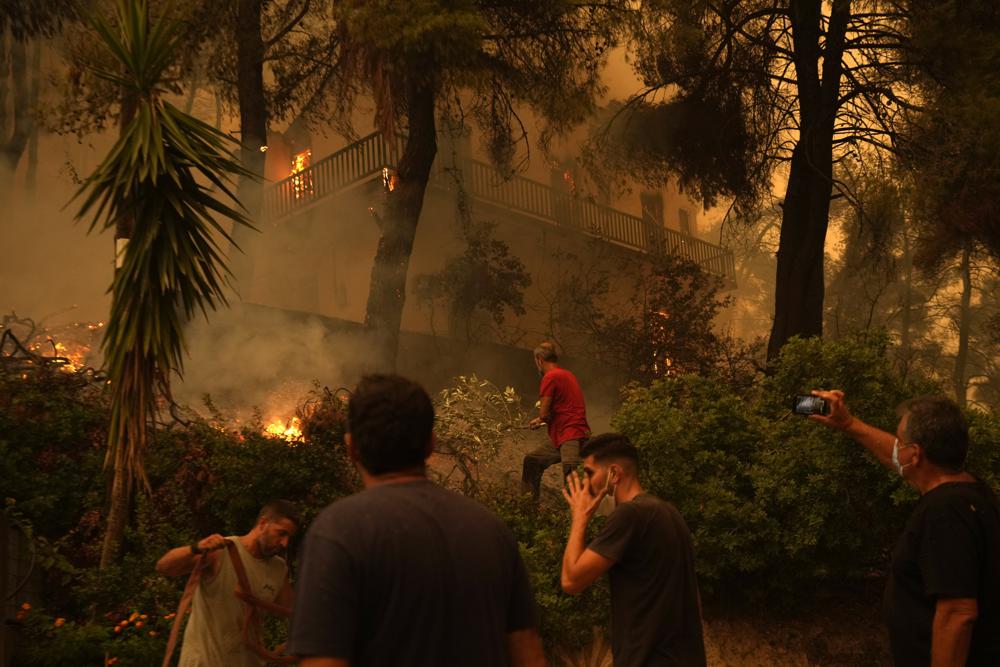Greece is in crisis as Athens battles a calamity. As wildfires burned across Greece for a seventh day on Tuesday and hundreds of people were evacuated by ferry from the island of Evia east of the capital. The catastrophe recalls the fire in the forests of Brazil a year ago, but Greece and its capital now contend with an emergency that is far graver.
Whereas the fire in the Latin American country was largely attributed to the urge towards industrialisation, the disaster in Athens is fundamentally the fallout of climate change in a relatively impoverished swathe of Europe. The fire on Mount Parnitha on the outskirts of Athens has forced the evacuation of thousands of people over the past week, with emergency crews facing winds and high temperatures as they battle to contain its spread.
Wildfires have erupted in many parts of the country amidst the worst heatwave in Greece in more than 30 years, tearing through tens of thousands of acres of forest, destroying homes and businesses and killing animals. It is a measure of the excessive heatwave that temperatures have been over 40 Celsius throughout the week.
After visiting the main fire control centre in Athens last Saturday, Prime Minister Kyriakos Mitsotakis called it a “nightmarish summer,” adding the government’s priority “has been, first and foremost, to protect human lives.” The government plans to reimburse people affected by the fires and will designate the burned land as areas for reforestation. Nature will, in a sense, be protected. A brutal heatwave scorches southern Europe as the continent’s summer of extreme weather rages on.
More than 700 firefighters, including reinforcements from Cyprus, France and Israel, have been deployed to fight the blaze north of Athens, assisted by the army and water-bombing aircraft. The authorities have battled more than 400 wildfires across the country in the last 24 hours, with the biggest fronts still burning in the north of Athens, Evia and areas in the Peloponnese including Mani, Messinia and ancient Olympia, the site of the first Olympic Games.
One man died on Friday after being injured by a electricity pylon in a fire-stricken area near Athens, and at least nine others have been injured, authorities said. Residents in suburbs north of Athens have been forced to leave in a hurry with the few belongings they could take. In neighbouring Turkey, authorities are battling the country’s worstever wildfires.
Flames sweeping through its south-western coastal regions forced the evacuation of tens of thousands of people. In Italy, hot winds fanned flames on the island of Sicily this week. Geographically, at least three nations are burning, notably Greece, Turkey and a part of Italy.
Prime Minister Mitsotakis and his beleaguered government have pulled out all the stops; so very unlike Brazil’s President, Jair Bolsonaro. While the fire in Brazil in 2020 was an economic disaster, the catastrophe in Athens and further afield must spur the discourse on climate change.










